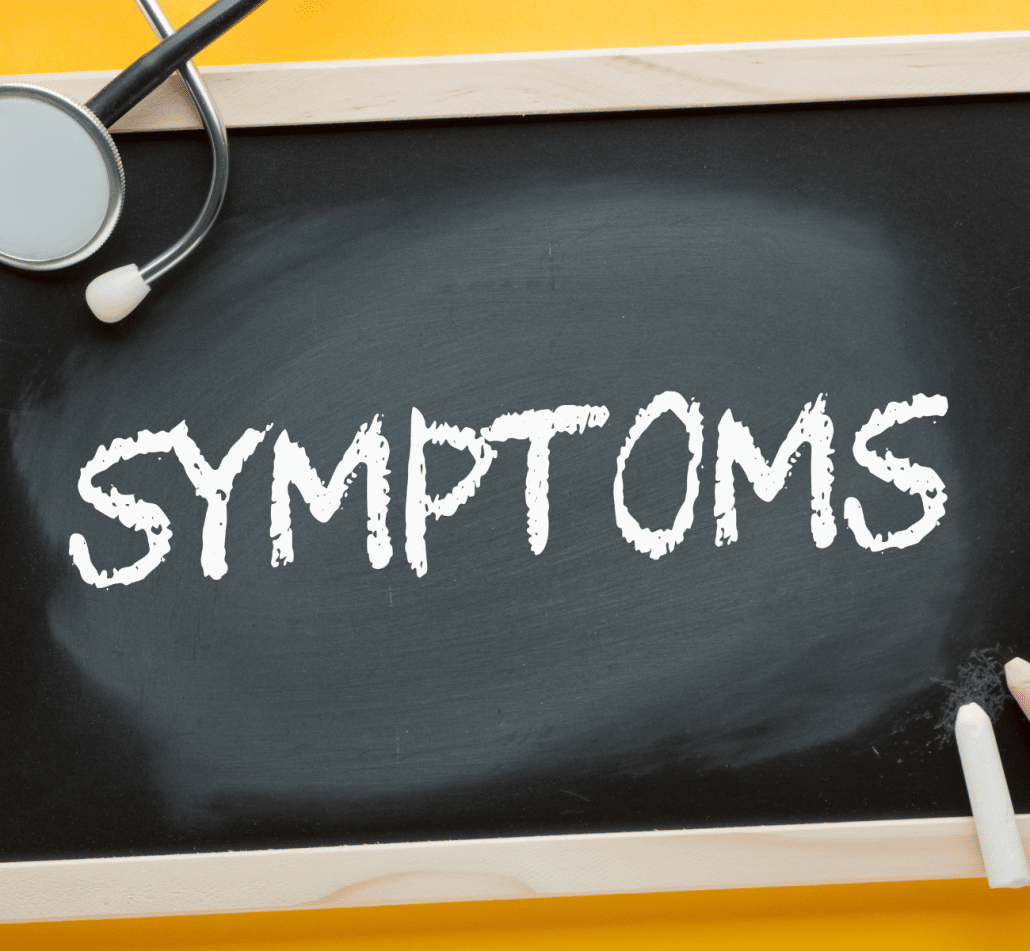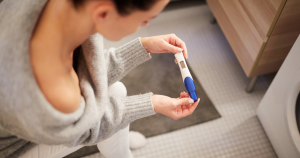Two Week Wait – The Ultimate Guide & How To
The two-week wait is a dreaded time for anyone trying to conceive. This is the period after ovulation and before you can take a urine pregnancy test. For some people, it can feel like an eternity.
This guide will help you get through the two-week wait with as little stress as possible. We’ll discuss what TWW means, symptoms to look out for, and how to cope with TTC anxiety.
We’ll also give you some tips on things you can do during this period.
What Does TWW Mean?
The two-week wait or TWW is the time between ovulation and when your next period should start. You may have heard it referred to as “the luteal phase,” which refers to the length of the second half of your menstrual cycle ( after you ovulate).
It is after the two-week wait that you are able to receive positive pregnancy tests.
If you have been struggling with infertility for a while, or perhaps are receiving fertility treatment, your doctor may offer you a blood test, in order to detect pregnancy.
Blood pregnancy tests can detect pregnancy as early as 6-8 days after ovulation (6DPO to 8 DPO)- so it is capable of showing accurate results much earlier than an at home pregnancy test!
How Long Is The Two-Week Wait?

On average, a woman will get her period 14 days after she ovulates.
That means that if you are trying to conceive with regular 28-day cycles, then most likely, your two-week wait lasts from Day 14–21 in every cycle. But that’s just an estimate.
Here’s how long your two-week wait really can last:
- If you have shorter cycles like 21 days, your TWW will be from Days 7 to 14.
- If you have longer cycles, like 35 days, your TWW will last from Day 21–28.
So, What Happens During The Two-Week Wait?
The best way to understand what happens after ovulation is by looking at the luteal phase of the menstrual cycle. In this section, we’ll go over each step of the two-week wait and tell you exactly what is happening in your body during this time (and why it feels so hard).
It may seem like nothing but waiting right now, but soon enough, it becomes clear that a lot is going on.
You Ovulate: Ovulation occurs about 14 days before your period. This means that if you have a regular 28-day cycle, ovulation will happen on Day 14.
The Egg Is Released: After ovulation, the egg is released from the follicle and begins to travel down the fallopian tube. If it’s met by sperm along the way, fertilization can occur.
The Luteal Phase Begins: About two days after ovulation (or sometimes even right after), your body starts to produce a hormone called progesterone. Progesterone helps prepare the uterus for implantation of a fertilized egg (should one occur). If implantation doesn’t occur, progesterone levels will drop, and your period will start.
The Two-Week Wait Begins: During the two-week wait, you are waiting to see if implantation occurred or not. This is a time of high anxiety for many women (and their partners!) because it’s so hard to know what is happening inside your body.
Two Week Wait Symptoms

When you are trying to conceive, the two-week wait (TWW) is a time of waiting and anticipation. This is the time between when you ovulate and when your period is supposed to start. This can be an anxious time for some women as they wait to see if they are pregnant or not.
The two week wait symptoms vary from woman to woman. Some women experience no symptoms during this time, while others have very noticeable signs that they are pregnant. The most common symptom of pregnancy during the TWW are:
Tender Breasts
You will often notice that your breasts are more sensitive than normal during the two-week wait. This is due to the increase in hormones that occur when pregnant.
Increased Urination
You may find yourself needing to go to the bathroom more often than usual during the TWW. This is also due to the increase in hormones.
Fatigue
Pregnancy can be very tiring, and many women feel tired during the two-week wait. This is another symptom caused by the increase in the pregnancy hormone, progesterone.
Nausea and Vomiting
Many women experience nausea and vomiting during early pregnancy.
If you are experiencing these symptoms, there is a good chance that you are pregnant.
If you are experiencing any of these symptoms, it is good to take a pregnancy test. You can purchase over-the-counter tests, or you can visit your doctor for a -panel test. If you are pregnant, the sooner you know, the better. You can start planning for your baby and begin prenatal care.
Missed Period
A missed period is the most common pregnancy symptom that prompts women to buy early pregnancy tests.
A missed period is a pretty positive sign of pregnancy!
How Can You Survive The Two-Week Wait?
The two-week wait is tough—we know that. But there are some things you can do to make it easier on yourself (and your partner). Here are our top tips for surviving (and even enjoying.) the TWW:

Don’t Stress About Symptoms Or Lack Thereof
We know this is easier said than done, but stressing about every little symptom will only make things worse. Just relax and enjoy your time.
Keep Busy
This is a great time to catch up on all of those shows you’ve been wanting to watch or start that new book you’ve been meaning to read. Distract yourself from the waiting game!
Take Care Of Yourself
Make sure to get plenty of rest, eat healthy foods, and drink lots of water. All of these things will help keep you feeling your best during this stressful time.
Talk To Your Partner
The two-week wait can be hard on both partners emotionally. Make sure to talk to each other about how you’re feeling and what’s going on with your bodies. This will help ease any tension building up between the two of you.
So, What Should I Avoid During My Two-Week Wait?
Avoiding certain things during the two-week wait will help increase your chances of getting pregnant. Here are some tips to keep in mind:
- Avoid Alcohol and Smoking: Both alcohol and smoking can make it harder for you to get pregnant, so try not to drink or smoke while trying.
- Limit Caffeine Intake: Caffeine has been shown in studies to lower fertility rates by up to 20%. Try drinking decaf coffee instead.
- Relax: Stress is a major cause of infertility, so make sure that you’re taking care of yourself physically and mentally during this time. This includes eating well-balanced meals at regular intervals throughout the day, exercising regularly (but not too much), sleeping enough hours each night; and avoiding any extra stress in your life.
- Soak Up The Sun: Get outside and enjoy the fresh air. Vitamin D is essential for fertility, so make sure to get some sun every day during the two-week wait.
- Stay Away From The Internet: We know that it’s tempting to go online and search for every possible symptom, but this will only stress you out even more. Take our advice—stay away from the internet during the TWW. You can always look things up later if you want to know what might be happening inside your body right now.
Frequently Asked Questions About TTW.
Now let’s go over some frequently asked questions about the two-week wait.
What are the TWW symptoms by DPO?
Some women start having pregnancy symptoms within days of conceiving, while others don’t experience them until much later in their first or second trimester (about 12 weeks). The most common symptom is nausea followed by fatigue, breast tenderness, and frequent urination.
If you have any of these symptoms, it might be a good idea to take a home pregnancy test to see if they are still present after two weeks since conception occurred.
What Happens to Your Body During the TWW?
Your body will be going through some changes during the two-week wait. It’s common to have symptoms like cramps, bloating, and mood swings as your hormones fluctuate before ovulation occurs.
How Many Days After Conception Do Early Pregnancy Symptoms Occur?
Some women start having pregnancy symptoms within days of conceiving, while others don’t experience them until much later in their first or even second trimester (about 12 weeks). The most common symptom is nausea followed by fatigue, breast tenderness, and frequent urination.
How Can I Cope with TTC Anxiety During the Two-Week Wait?
It’s perfectly normal to feel a little anxious during the two-week wait. After all, you’re waiting to find out if you’re pregnant or not! Here are some tips on how to deal with TTC anxiety:
- Talk to your partner about how you’re feeling – they can help support you through this time.
- Make a list of things that make you happy and try to do them every day. This could be anything from reading your favourite book, going for a walk in nature, or watching your favourite movie.
- Keep yourself busy by doing things like organizing your closet, painting your nails, or cooking your favourite meal.
Final Thoughts On The Two-Week Wait (TWW) from MyBump2Baby

The two-week wait is hard on anyone trying to conceive. It can feel like there’s nothing else in life besides waiting for your period or a positive pregnancy test result. Just remember that all of these emotions are normal, and they will pass eventually! Be patient, take care of yourself, and talk to your loved ones about how you’re feeling. The best thing you can do during this time stays positive—even if it feels like the hardest thing in the world right now!
More DPO Articles from MyBump2Baby
To read about pregnancy symptoms at each day past ovulation, click the links below:
- 3 DPO Symptoms
- 4 DPO Pregnancy Symptoms
- 5 DPO Early Pregnancy Symptoms
- 7 DPO Pregnancy Symptoms
- 8 DPO Pregnancy Symptoms
- 9 DPO Pregnancy Symptoms
- 10 DPO Pregnancy Symptoms
- 11 DPO Pregnancy Symptoms
- 12 DPO Pregnancy Symptoms
Or, why not read our next article: what causes a faint positive pregnancy test then negative next day?
Carla is the founder of MyBump2Baby. Carla has a huge passion for linking together small businesses and growing families. Carla’s humorous, non-filtered honesty has won the hearts of thousands of parents throughout the UK.
She has previously written for the Metro and made appearances on BBC News, BBC 5 live, LBC etc. Carla is a finalist for Blogger of the Year award with Simply Ladies inc. Carla is also the host of the popular Fifty Shades of Motherhood podcast and The MyBump2Baby Expert podcast.


















